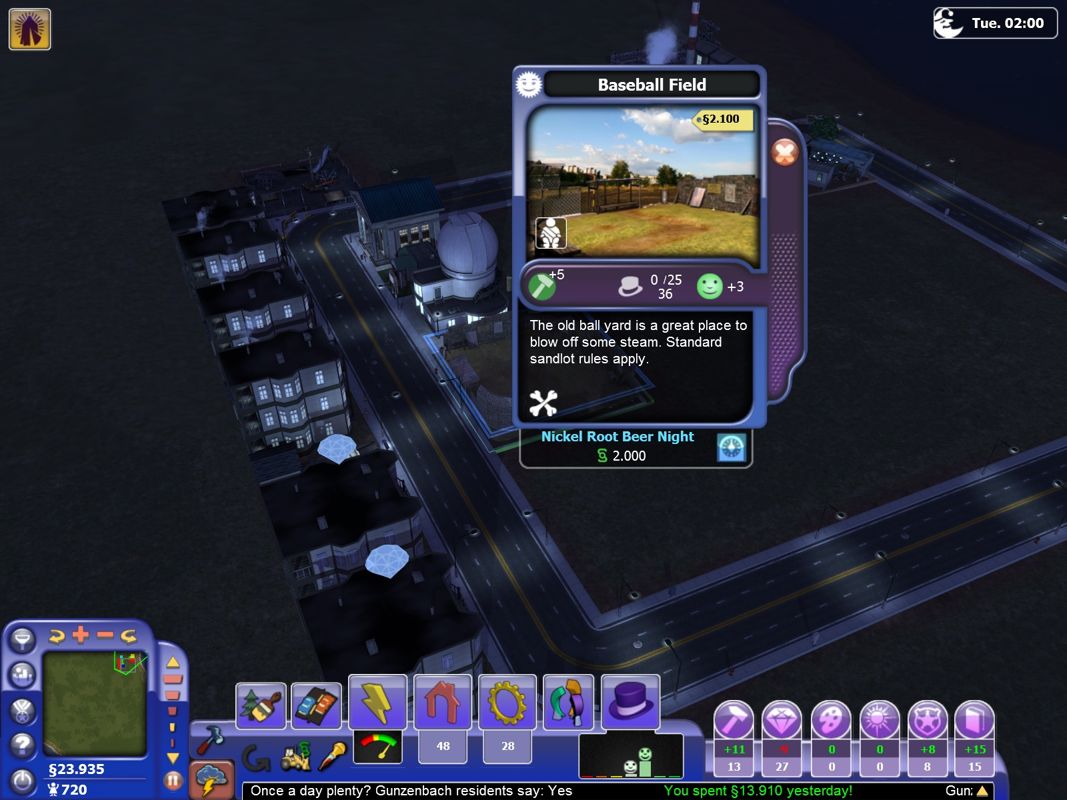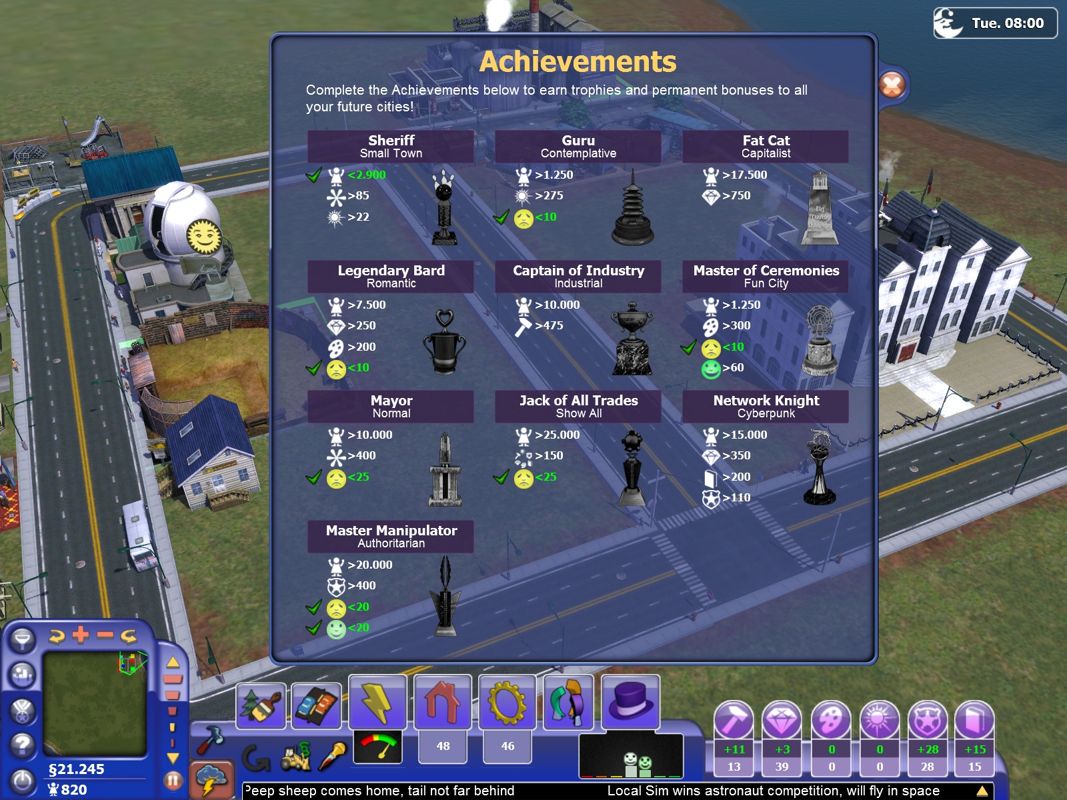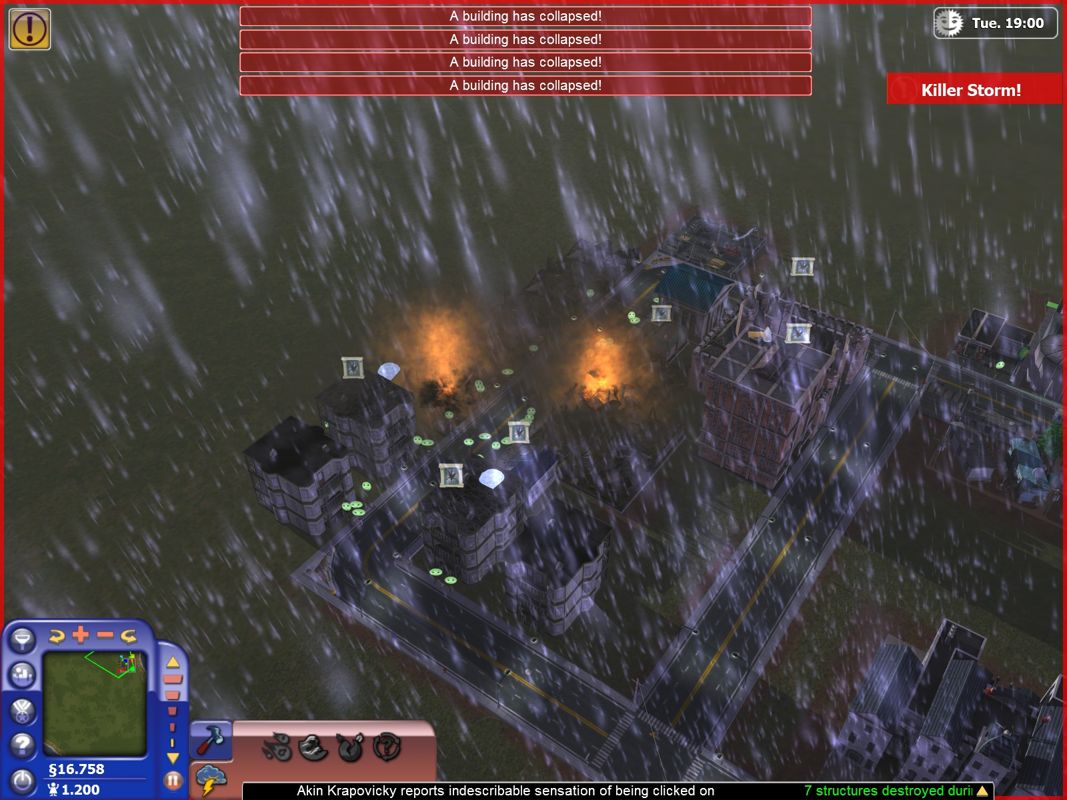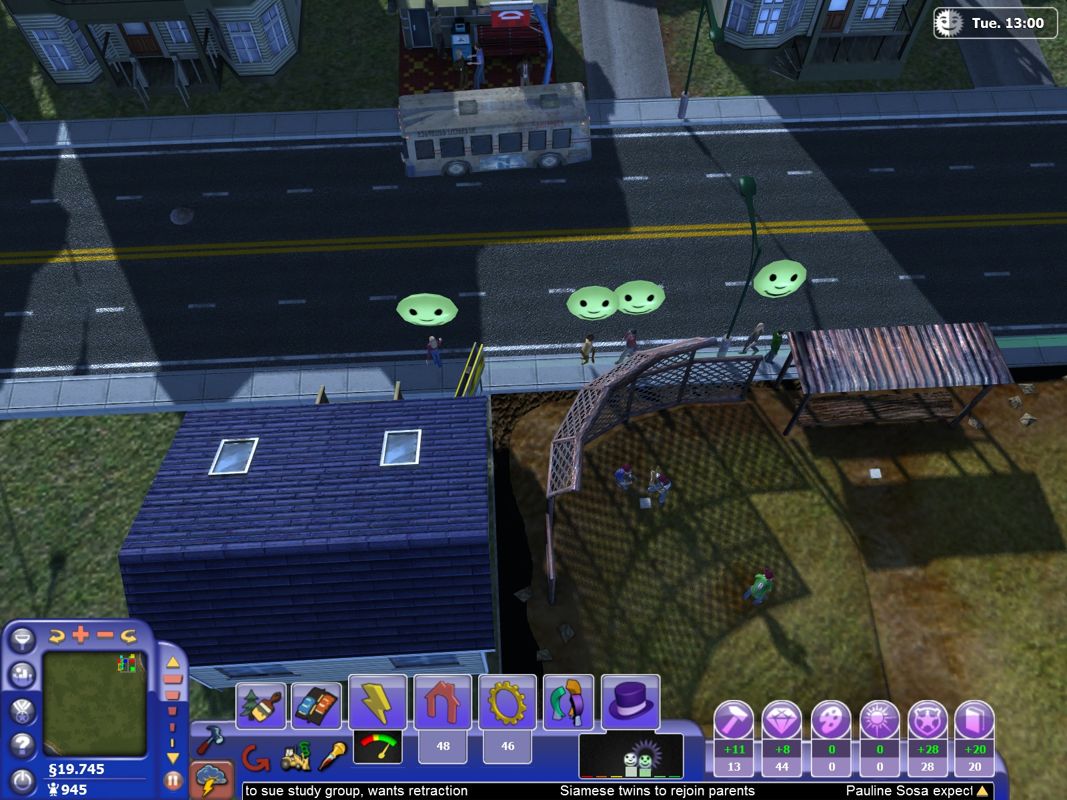Retro Replay Review
Gameplay
SimCity Societies takes the familiar city-building premise and reinvents it by focusing on individual building placement and social resources rather than rigid zoning and complex economic micromanagement. Every structure you place—from tiny dwellings to towering commercial blocks—contributes to or consumes one of six social resources, such as Productivity, Prosperity, or Creativity. This system emphasizes the social character of your city: without the right mix of resources, even a simple three-story house will sit empty or decay, pushing you to strike a balance between residential, industrial, and cultural buildings.
(HEY YOU!! We hope you enjoy! We try not to run ads. So basically, this is a very expensive hobby running this site. Please consider joining us for updates, forums, and more. Network w/ us to make some cash or friends while retro gaming, and you can win some free retro games for posting. Okay, carry on 👍)
Unlike traditional SimCity titles, you don’t need to route power lines or dig water pipes across your entire map—placing a single power plant automatically blankets your city in energy until its reserves are exhausted. However, you do still have control over roads, subways, and bus lines, meaning transportation remains a critical strategic layer. Connecting public transit hubs and planning thoroughfares is key to keeping Sim citizens moving between home, work, and play, especially as your city’s population swells.
One of the game’s most charming quirks is how Sims arrive en masse whenever there’s free residential space, unhindered by immediate concerns like schools or police coverage. Instead of constantly policing their needs, you focus on happiness boosters—like baseball stadiums that host “Nickel Root Beer Nights”—to keep your Sims content and productive. These leisure venues introduce fun risk-reward dynamics: while a special event can send happiness and resource output skyward, there’s also a chance of injuries that can briefly disrupt your city’s flow.
Progression in SimCity Societies isn’t driven by a strict campaign or mission structure but by achievements and unlocks. Early scenarios task you with reaching population milestones, resource thresholds, or happiness ratings to earn medals and trophies. As you unlock more buildings in normal play, you gain access to free-play and god-mode, where unlimited funds let you experiment with wilder city archetypes—from serene eco-villages to neon-drenched cyberpunk megacities.
Graphics
Graphically, SimCity Societies adopts a bright, stylized aesthetic that departs from the more realistic approach of its predecessors. Buildings and Sims are rendered with cartoonish flair, featuring exaggerated proportions and colorful palettes that emphasize personality over photorealism. This choice lends the game a friendly, approachable vibe, making it accessible to newcomers who might otherwise be intimidated by the franchise’s traditional complexity.
Zooming in reveals a surprising level of detail: Sim citizens wander the streets, children play in parks, and special events come alive with animated crowds cheering at baseball games. Day-night cycles and weather effects—such as drifting clouds or gentle snowfall—add life to your metropolis without overwhelming your hardware. Even on modest systems, the game maintains smooth frame rates, thanks to its optimized engine and less demanding art style.
While the game’s visuals may feel dated compared to modern city-builders, the charm lies in its personality-driven design. Each building exudes character through unique architectural motifs—industrial factories sport gritty smokestacks, cultural venues boast ornate facades, and futuristic towers gleam with neon highlights. The result is a visually cohesive world where your city’s “society” shines through every rooftop and town square.
Story
SimCity Societies doesn’t feature a linear narrative or central protagonist; instead, it delivers a sandbox-style progression that feels more like creating your own story as you build. The underlying theme is the evolution of a society—how you shape its culture, values, and identity through the buildings and resources you prioritize. Want a utopian arts community brimming with creativity? Opt for galleries, theaters, and music halls. Crave a robust industrial powerhouse? Stack factories, refineries, and research labs.
Scenario objectives serve as light narrative beats, guiding you through different societal archetypes with specific challenges. For example, one scenario might ask you to foster technological innovation by reaching a high Creativity rating, while another tests your ability to maintain public happiness during rapid population growth. Each scenario unlocks new structures that expand your city-building toolkit and subtly tells the story of your city’s transformation.
Beyond milestones and medals, the emergent stories come from unexpected events: a rash of injuries at a festival, resource shortages that spark civic unrest, or a creative boom that turns your town into a cultural hotspot. These dynamic moments foster personal narratives, ensuring that no two cities feel identical. In this way, your journey in SimCity Societies is less about following a set plot and more about writing your own urban saga.
Overall Experience
SimCity Societies stands out within the city-builder genre by stripping away much of the mathematical intricacy that defined SimCity 4 and replacing it with a social resource system that rewards creativity and experimentation. Its streamlined mechanics make city development feel more intuitive, especially for players new to the series or those who prefer a lighter management experience. By focusing on individual buildings and social dynamics, the game offers fresh strategic challenges without overwhelming you with spreadsheets.
The mix of colorful graphics, lively animations, and whimsical events keeps the atmosphere light and engaging, even as your metropolis grows into a sprawling urban landscape. The decision to auto-manage utilities like power and water reduces busywork, letting you focus on the fun parts of city planning: crafting neighborhoods, hosting festivals, and chasing new achievements. At the same time, the transportation layer retains enough depth to satisfy players who love optimizing traffic flow and public transit networks.
That said, seasoned city-builders seeking deep economic simulations may find SimCity Societies somewhat shallow, as traditional concerns like detailed budgeting, tax rates, and pollution control take a backseat. However, if you’re looking for an approachable, creative take on urban development—where personality and social harmony drive your design choices—this title delivers a unique and memorable experience. Ultimately, SimCity Societies invites you to play architect, sociologist, and storyteller all at once, making each city an expression of your vision and values.
 Retro Replay Retro Replay gaming reviews, news, emulation, geek stuff and more!
Retro Replay Retro Replay gaming reviews, news, emulation, geek stuff and more!









Reviews
There are no reviews yet.